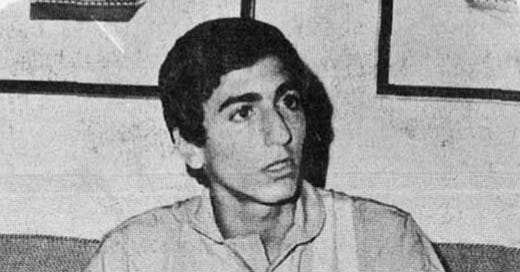Iranian politics—domestic politics, the politics of the diaspora—are kept well out of view in our corporate media. We read nothing of these matters week in, week out, even as we consider them of vital importance given the Islamic Republic’s prominence in the region and its increasing diplomatic and economic influence among non–Western powers. Iran’s expanding network of alliances, not least but not only its surprising accord this year with the Saudi kingdom, is also much on our minds. And let us not forget—how could we, indeed?—the efforts of the reckless leadership in Tel Aviv—always with the connivance of the policy cliques in Washington—to exploit fissures in the community of exiled Iranians in apartheid Israel’s incessant campaign to subvert the Iranian republic.
Muhammad Sahimi’s insights into these questions are rare and valuable, if not unique, as we keep abreast of Iranian politics. We welcome him once again into our pages. In this essay Sahimi considers the preposterous proposals of the last shah’s preposterous son, who would retake power in Tehran by allying with Tehran’s most dangerous enemy.
— P.L.
Muhammad Sahimi
4 JUNE—In its decades-long quest to confront and weaken Iran, Israel has taken a multipronged approach. In addition to its well-known lobbying efforts in the United States to impose the harshest possible economic sanctions on Iran, Israel has been active on several other fronts, ranging from assassinations and sabotage to supporting small separatist groups and recruiting elements of Iran’s exiled opposition to carry water for it.
Lately the apartheid state’s long and many-sided campaign to subvert the Islamic Republic, if not destroy it, has taken the most curious of turns. In April Reza Pahlavi and his wife, Yasmin, accepted an invitation to visit Israel. The display that followed their arrival is not short of astonishing.
The 62–year-old offspring of the shah overthrown during the Iranian Revolution 44 years ago was greeted by Gila Gamliel, Israel’s intelligence minister and the couple’s official host. Gamliel referred to them throughout their five-day visit as “His Majesty” and “the Queen.” Among various others, they met with Benjamin Netanyahu, the beleaguered and viciously anti–Iranian prime minister, and Isaac Herzog, the apartheid state’s president.
This marks a pitiful turn in the already pitiful “fake opposition” within the Iranian exile community. Pahlavi’s turn to Israel reflects his desire—his dream, indeed—of emerging effectively as the Juan Guaidó of Iran. In this cause he has lately split from other prominent members of the fake opposition and now stands allied with the most vicious enemies of the Iranian people, and here I place the U.S. alongside the apartheid state. It is impossible to take seriously his claim to stand as Iran’s true leader, but we must: The potential consequences of this charade are a matter that should concern all of us.
It is important to put Pahlavi’s dalliance with the Israelis in its proper historical context if we are to understand its import and attempt to judge where it may lead.
Keep reading with a 7-day free trial
Subscribe to The Floutist to keep reading this post and get 7 days of free access to the full post archives.



